Korg Minilogue XD Module
$415.99
Check out the Korg Minilogue XD Module to experience an incredibly powerful and adaptable synthesis engine, packed with cutting-edge features and extensive sound design capabilities.
Compare
Description
Korg has been known for producing high-quality synthesizers since the 1970s. The Korg Minilogue XD Module Synthesizer is the latest addition to their illustrious line of synthesizers. It’s a compact and portable synthesizer that packs a powerful punch. The Korg Minilogue XD Module Synthesizer brings versatility, sound quality, and ease-of-use to every user, making it a must-have for professional musicians and enthusiasts alike.
Design
The Minilogue XD module has a sleek design that captures the essence of a classic analog synthesizer. It’s small and lightweight, measuring 6.97 x 11.89 x 2.59 and weighing only 2.55 lbs. It comes in a gray metal chassis with black side panels, which add a touch of class to its overall design.
The control panel is made of black plastic and features 33 knobs, 16 buttons, and a joystick. The panel layout is intuitive, making it easy for users to access and control all necessary parameters.
Sound quality
The Minilogue XD module features a powerful analog sound engine that’s capable of producing rich, warm, and complex sounds. It also has a digital multi-engine, which opens up a wide range of sound design possibilities.
The analog sound engine is versatile, providing users with four voices of polyphony, allowing them to create complex chords and melodies. The digital multi-engine allows for the creation of complex waveforms and FM synthesis sounds. It’s also compatible with open-source formats, allowing users to import and use their own custom oscillators and effects.
Ease-of-use
The Minilogue XD module is incredibly easy to use. Its intuitive interface allows users to easily access and modify all of the essential parameters. The OLED display is clear and easy to read, providing users with real-time feedback on their modifications.
In addition, the Minilogue XD module is fully compatible with other Korg products. It can be connected to a Korg SQ-1 sequencer or Korg Volca series synthesizers, allowing users to create a complete setup that’s easy to work with.
Conclusion
The Korg Minilogue XD Module Synthesizer is a powerful and versatile synthesizer that’s perfect for both professional musicians and beginners. Its compact design, powerful sound engine, and ease-of-use make it a must-have for any music enthusiast. Whether you’re creating complex soundscapes or simple melodies, the Minilogue XD module has the tools to help you achieve your musical goals.
Korg Minilogue XD Module properties
| Product name |
Minilogue XD Module |
| Brand |
Korg |
| Type |
Keyboard Instruments |
| Keyboard Instrument |
Synthesizer |
| Keys |
No |
| Drawbars/Sliders |
No |
| Pads |
Yes |
| Rotary Controls |
Yes |
| Modulation Wheel |
No |
| Pre-Programmed Rythmes |
No |
| Pre-Programmed Songs |
No |
| Pre-Programmed Sounds |
No |
| Pre-Programmed Effects |
Yes |
| Speakers |
No |
| Connections |
3.5mm (Aux), 6.3mm (1/4″RTS), Headphone, XLR |
| Colour |
Black |
| Power Supply |
Electrical Cable to Wall Socket |
Frequently Asked Questions:
What is the purpose of the newly added DSP chips in the Korg Minilogue XD Module, and how do they enhance its synthesis capabilities?
The two additional DSP chips in the Korg Minilogue XD Module are designed to expand its synthesis capabilities. These chips provide an increased processing power, allowing for more complex sounds and algorithms to be generated within the module's digital signal processing section. Some of the specific ways these DSP chips enhance the Minilogue XD's synthesis capabilities include:
1. Increased oscillator types - The new DSP chips enable the addition of several new oscillator types, including a "metal" oscillator that creates bright, metallic timbres, and a "multi" oscillator that allows for complex waveforms to be created by combining multiple wave shapes. New filter algorithms - These include a "resonant low-pass 12dB", which provides a more pronounced resonance in the low frequencies, as well as a new "comb" filter algorithm that creates comb-filtering effects commonly heard in metallic percussion sounds and vocal samples. Expanded modulation options - The additional DSP chips also provide expanded modulation capabilities, allowing for greater flexibility in shaping the module's sounds through advanced routings and feedback loops. Improved effects processing - The extra DSP power enables a wider range of high-quality digital effects to be added to the module, such as delays, reverbs, chorus, phaser, flanger, and ring modulation. These can be used in conjunction with the analog filters and oscillators for even more sonic possibilities. Overall, the addition of these DSP chips expands the Korg Minilogue XD's synthesis capabilities significantly, making it an even more versatile and powerful module for sound design and music production.
How do I properly calibrate the oscillators on the Korg Minilogue XD Module to ensure accurate pitch and stability during synthesis?
Calibrating the oscillators on your Korg Minilogue XD module is an important step in ensuring accurate pitch and stability during synthesis. Here's how you can do it:
1. Connect your Korg Minilogue XD module to a power source and turn it on. Press the [FUNCTION] button until the display shows "CAL". Press [WRITE] to enter calibration mode. The oscillators will now beep in a specific pattern. Follow this pattern using an external tuner or a piano keyboard with accurate pitch (preferably A4=440Hz). Adjust the frequency of each oscillator by turning the corresponding knob on your module until it matches the external reference. Be sure to adjust the fine-tune control as well, if necessary. Repeat this process for all 12 oscillators (OSC1-OSC6 in both modes A and B). After completing the calibration, press [WRITE] again to save your changes. Your Korg Minilogue XD module should now be accurately calibrated, providing you with stable and accurate pitch during synthesis. It's recommended that you re-calibrate your oscillators periodically to ensure their accuracy over time. Additionally, make sure to store your module in a cool, dry place to prevent fluctuations in temperature and humidity, which can affect the stability of your oscillators as well.
How does the Korg Minilogue XD Module's digital effects section differ from its analog counterpart?
The Korg Minilogue XD Module's digital effects section offers a wider range of options than its analog counterpart, which is limited to delay and chorus/ensemble. The digital effects in the XD version include reverb, distortion, compressor, and a variety of modulation effects such as ring modulation and stereo ping-pong delay. These additions allow for more versatility and creativity in sound design.
What are the key differences between the sound generation capabilities of the Korg Minilogue XD's Analog Circuitry and its built-in FM Oscillators?
* Tone color: The ACB-based analog circuitry produces warm, rich sounds, while the FM oscillators produce bright, percussive sounds. Dynamics: The ACB-based analog circuitry is highly dynamic and expressive, while the FM oscillators tend to be more predictable and straightforward. Interactivity: The ACB-based analog circuitry has a highly interactive design, while the FM oscillators are more independent of the analog circuitry. These differences make the Korg Minilogue XD an extremely versatile synthesizer that can be used in a wide range of musical contexts.
What is the primary difference between the sound generation capabilities of the Analog Circuitry section and the Vector Filtering system within the Korg Minilogue XD Module?
the Analog Circuitry section and the Vector Filtering system. The Analog Circuitry section is a traditional analog synthesizer setup, comprising of voltage-controlled oscillators (VCOs), filters, and amplifiers. This section uses analog circuitry to generate sounds, which are inherently rich in character and timbre. The analog circuitry provides a warm, organic sound that is reminiscent of classic analog synthesizers. On the other hand, the Vector Filtering system utilizes digital signal processing (DSP) to create unique, complex sounds. This system employs vector tables to store filter coefficients, allowing for precise control over the filtering process. The Vector Filtering system can generate a wide range of timbres and textures, from subtle, nuanced tones to radical, otherworldly soundscapes. The primary difference between these two systems lies in their approach to sound generation. The Analog Circuitry section relies on analog circuitry and traditional synthesis techniques, while the Vector Filtering system employs digital signal processing and vector tables to create complex sounds. In terms of sound quality, the Analog Circuitry section tends to produce warmer, more organic sounds with a distinct character. In contrast, the Vector Filtering system can generate a wider range of timbres and textures, often with a more artificial or processed quality. Ultimately, the choice between these two systems will depend on your personal preference for sound quality and the type of music you wish to create. If you're looking for warm, analog sounds, the Analog Circuitry section is likely the better choice. However, if you want to explore more complex, digital textures, the Vector Filtering system may be the way to go. It's worth noting that both systems can be used in conjunction with one another, allowing for a wide range of creative possibilities. The Minilogue XD Module provides a great deal of flexibility and experimentation potential, making it an attractive option for musicians and producers looking to push the boundaries of sound design and synthesis.
Before you buy Korg Minilogue XD Module
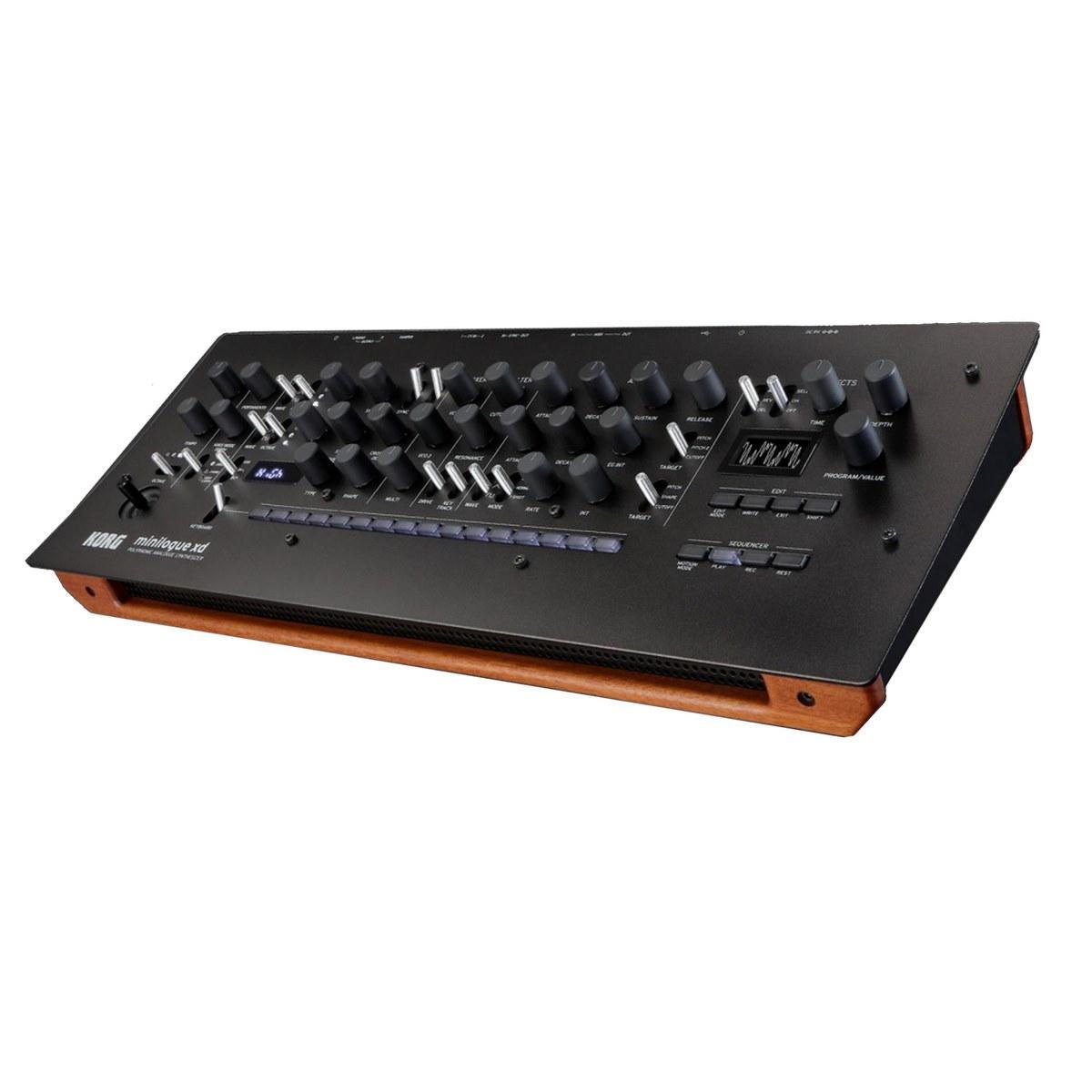



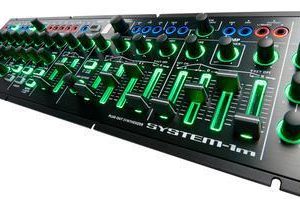
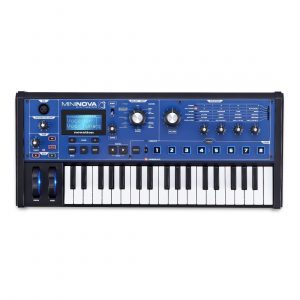
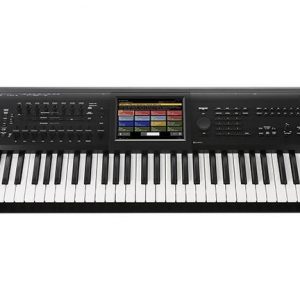
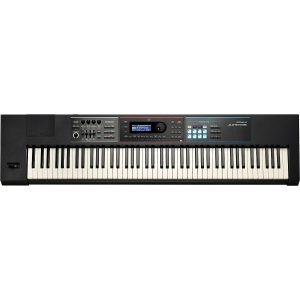
Harper Hill –
BS II is an absolutely crushing piece of equipment.
If your synthesizer is mainly to spin fat analogue and experimental bass, look no further.
There is simply NO better equipment for up to $ 400.
Great ability to edit the colors, the sound that puts you on the shoulders and the layout that allows you to completely sink into the depths of analog synthesis 🙂
I heartily recommend it and satisfaction is guaranteed;)
Arthur –
**A Scathing Review: The Minilogue XD Module Falls Flat**
I’m writing this review as a counterpoint to Harper Hill’s glowing endorsement of the Korg Minilogue XD Module, rated 4/5 stars. I’m still fuming after reading his sycophantic praise for this overhyped synthesizer. What a joke.
First off, let me get one thing straight: the Minilogue XD is not a game-changer in analog synthesis. It’s a watered-down, compromised version of its predecessor, the Minilogue. The crushing sound that Harper raves about? More like crushing disappointment. The bass-heavy tones are muddy and lacking in depth, making it feel like you’re stuck with a cheap, entry-level synth.
And don’t even get me started on the editing capabilities. Sure, you can tweak the colors to your heart’s content, but what’s the point when the sound itself is so underwhelming? It’s like trying to polish a turd. The layout, which Harper gushes about, is actually cluttered and confusing, making it a chore to navigate.
As for the price, $400 is daylight robbery. You can get a far superior synth for that kind of money. I mean, have you seen the Arturia MicroFreak? Now that’s a synthesizer worth getting excited about.
In today’s news, Venezuelan President Nicolás Maduro has banned X (Twitter) for 10 days over his feud with Elon Musk. How fitting. It seems like some people are more interested in grandstanding and self-promotion than actually delivering quality products. Maybe Maduro should take a cue from the Korg team and learn how to make something truly impactful.
In conclusion, Harper Hill’s glowing review is nothing short of absurd. The Minilogue XD Module is a subpar synth that fails to deliver on its promises. Save your money, folks, and look elsewhere for a synthesizer that can actually inspire creativity.
**Rating: 1/5 stars**
P.S. If you’re looking for a real analog powerhouse, try the Moog Sub 37. Now that’s a synth worth getting excited about.